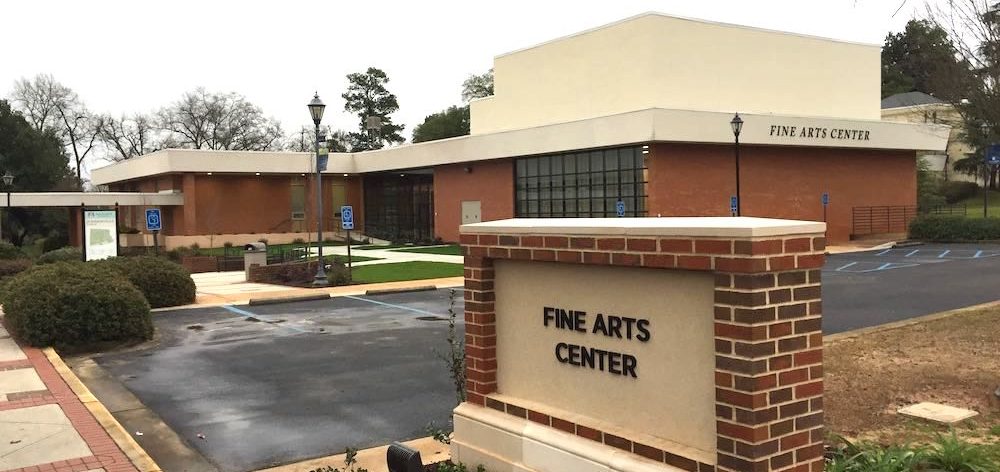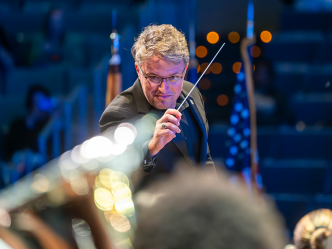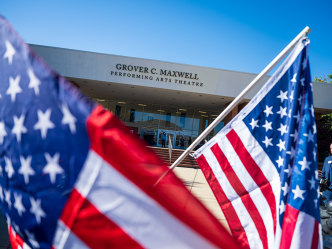The Department of Music at Augusta University is proudly celebrating the completion of the $3.5 million renovation of the Fine Arts Center with a ribbon-cutting ceremony at 2 p.m. Monday, Feb. 24.
“It’s a huge change and the new recital hall is absolutely amazing,” said Dr. Angela Morgan, chair of the music department and professor of violin. “Now, we have an incredible space with great acoustics where we can actually record our students’ performances.”
Dickinson Architects of Augusta renovated the Fine Arts Center by swapping the locations of the former recital space and the classrooms to improve function and capacity of the building, while also enhancing the faculty studios for practice and instruction.
A specific emphasis was placed on improving the acoustics in the instructional and performance areas, which will be a tremendous benefit for students and faculty in the performing arts.
“The footprint of the building actually remained the same,” Morgan said. “The whole project got started because the ceilings in our former rehearsal hall were so low that, acoustically, the volume levels were just deafening. In fact, we had our students wearing ear plugs.”
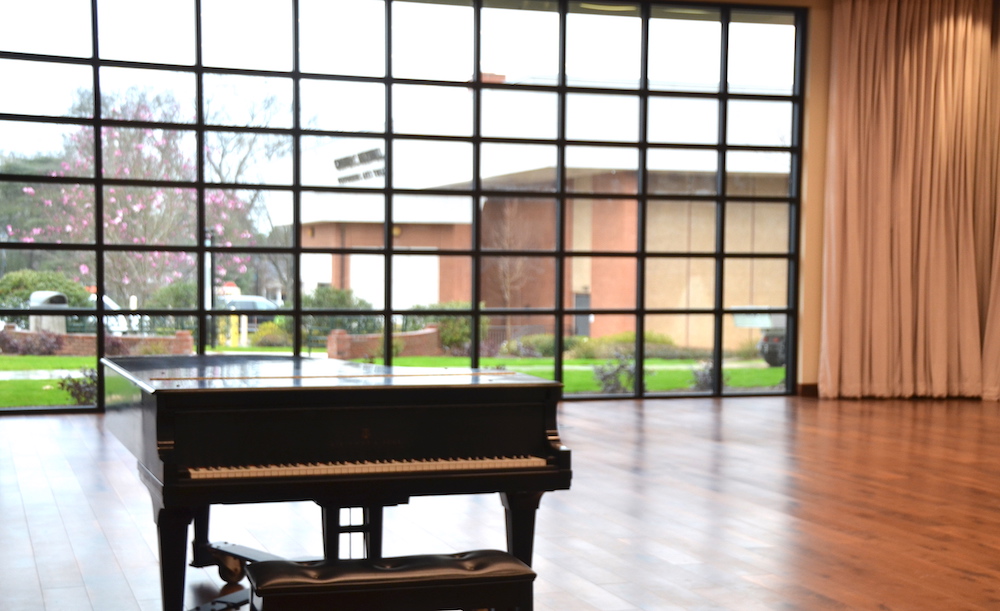
However, when the accrediting agency, the National Association of Schools of Music, visited the music department a few years ago and measured the high decibel levels in the former recital hall, it was clear the building needed to be renovated, Morgan said.
“When President Brooks Keel realized that Augusta University students were wearing ear plugs in rehearsals, he decided that something must be done, so that’s really how this all got started,” she said. “Basically, this building was built in the 1960s and, at that time, it housed all of the Fine Arts, which was art, music and theater. At that time, all three departments didn’t even have as many majors as we do now in the music department.”
When Morgan arrived on campus in 1995, theater students were no longer included in the Fine Arts Center, but the building was still packed with art and music students.
“We’ve had Band-Aid fixes over the years, but nothing like this renovation,” Morgan said. “Prior to this, the last renovation was in 2008 and that’s how we got the former rehearsal hall. While the 2008 renovations did provide us with more square footage than the old rehearsal hall that we had, the ceilings were just too low, and that’s a big issue when you have 45 to 50 people playing loudly.”
The lack of instrument storage space was also an issue prior to the recent renovations, Morgan said.
“Previously, all of the instrument storage was scattered in five different places around the building,” Morgan said. “It was very inefficient. Now, all of our instrument lockers are in the same place.”
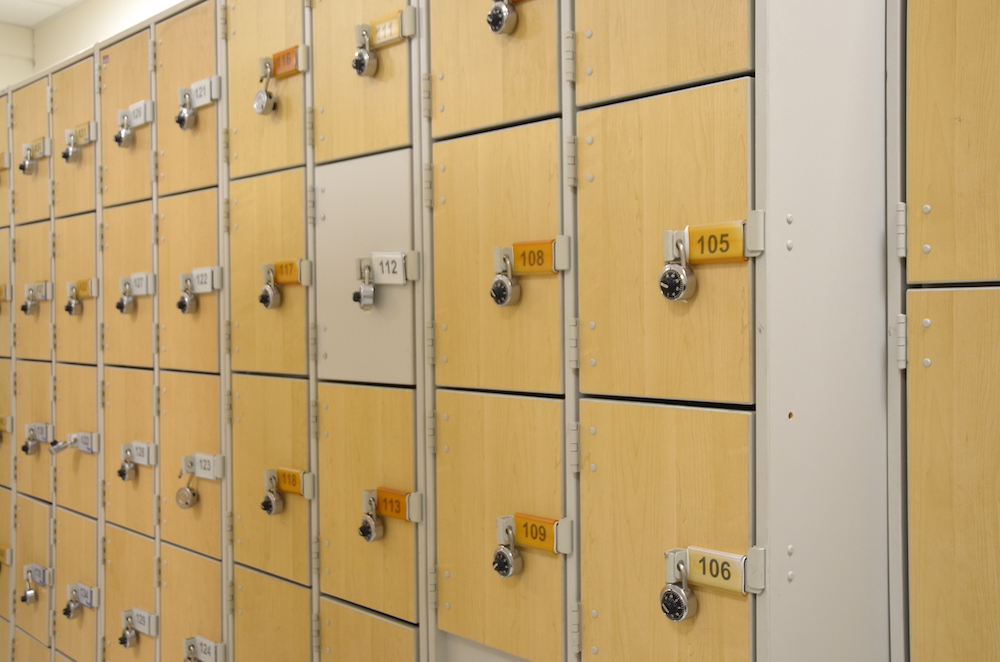
With the new renovations, Morgan said the department was able to create more practice rooms from the former storage spaces.
“It’s just such a refresh for this building,” Morgan said. “And people won’t believe the new recital hall.”
Morgan said the department worked with an acoustical engineer to perfect the sound within the new recital hall.
“There are large curtains that you can move around in the room and, by positioning them, you can increase or reduce the reverberation in the room by up to a half of a second,” Morgan said. “You would not believe the difference. It is really quite interesting.”
Wind Ensemble Director Michael Katterjohn has been experimenting with the different sounds created by repositioning the recital hall’s curtains, Morgan said.
“He has experimented with the positioning of his group in the room and will put the percussion in the back of the room and pulled the curtains around in such a way that it helps absorb and take away reverb,” Morgan said. “The wooden wall in the recital hall has panels that throw the sound out toward the audience and other panels that absorb the sound.”
The new recital hall will also make scheduling much easier for the music department, she said.
“In the past, scheduling student recitals was a challenge at the Maxwell Theatre,” Morgan said. “For example, I have seven student recitals scheduled for this semester and the biggest challenge in the past was finding enough available dates. In fact, we’ve had as many as 12 student recitals during one semester. So, we would schedule multiple students on a date at one-and-a-half-hour intervals because of the lack of available dates at the end end of the semester.”
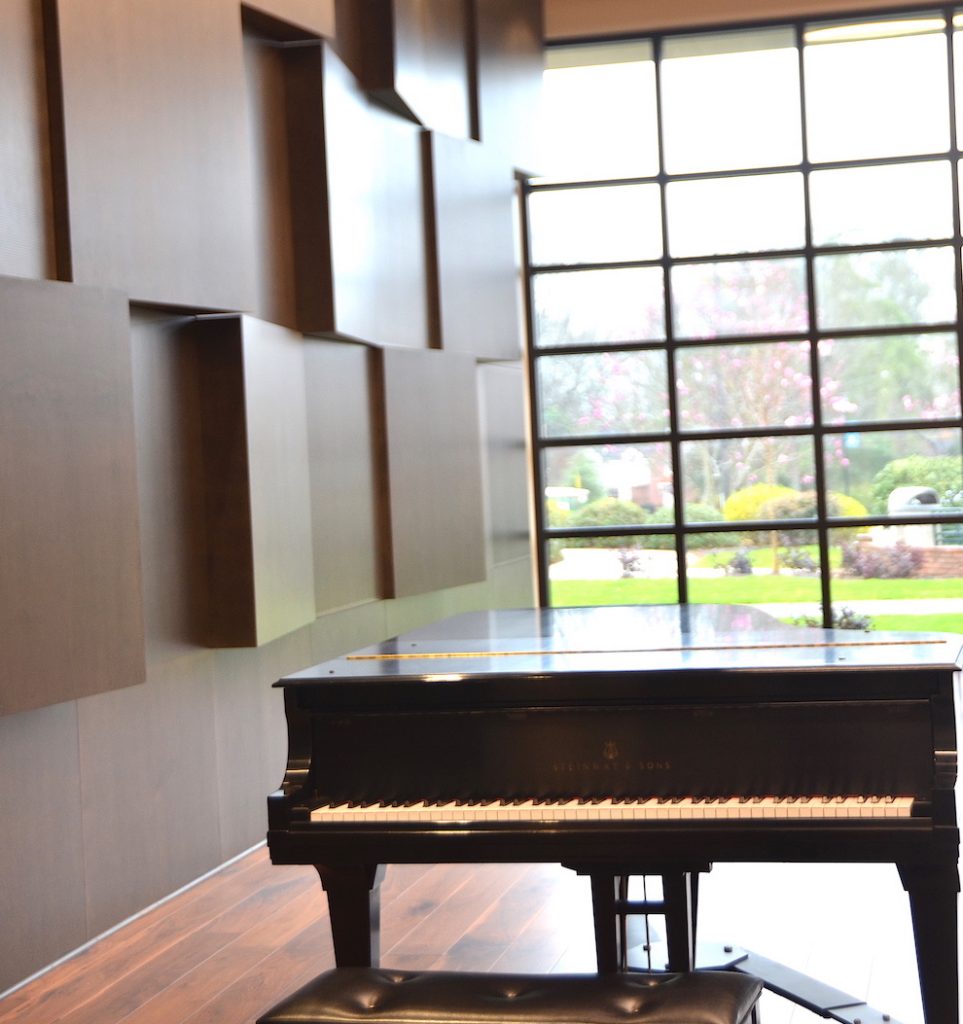
Now, with seating for an audience of 135 people, the new recital hall allows the entire department much more freedom, Morgan said.
“The space is also so much more accommodating,” she said. “For student recitals where there is just one student with a pianist, holding them in the Maxwell Theatre that seats 750 people can be overwhelming for students. After all, even if you have 100 people attending your recital, that’s still a lot of empty seats.”
The Fine Arts Center underwent about $3.5 million in renovations, as well as receiving a $100,000 donation from the estate of the late Eugenia Toole, an incredible pianist and organist who helped establish the music department at Augusta College in the 1950s.
“The $100,000 was used on improvements for the recital hall,” Morgan said. “Ensemble directors can now record their students. This basically gives us a recording studio, which we’ve never had before. The improvements that have been made to the Fine Arts Center are really exciting. We are thrilled.”
 Augusta University
Augusta University
